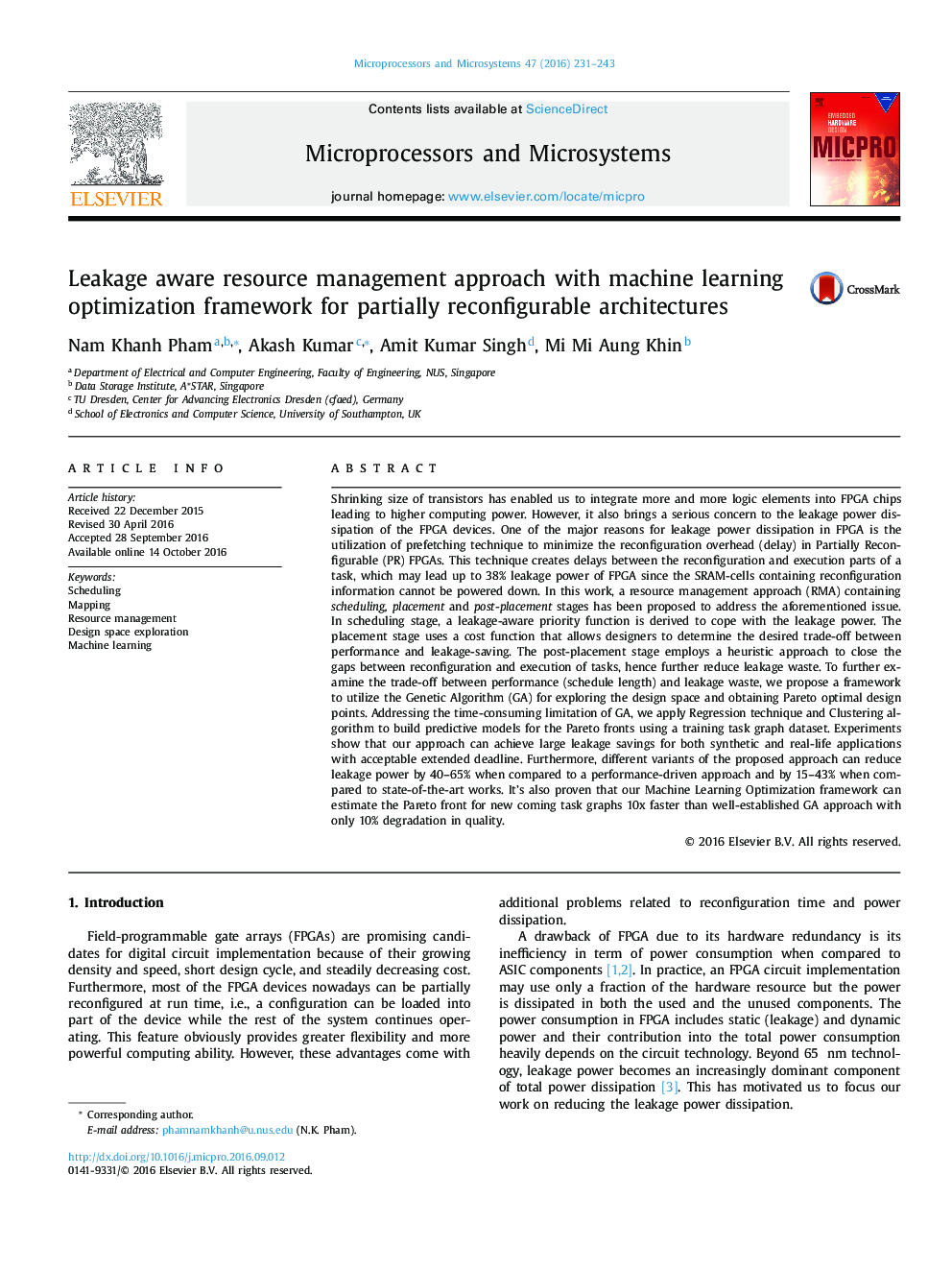| کد مقاله | کد نشریه | سال انتشار | مقاله انگلیسی | نسخه تمام متن |
|---|---|---|---|---|
| 4956845 | 1364712 | 2016 | 13 صفحه PDF | دانلود رایگان |
عنوان انگلیسی مقاله ISI
Leakage aware resource management approach with machine learning optimization framework for partially reconfigurable architectures
ترجمه فارسی عنوان
روش مدیریت منابع آگاه از نشت با چارچوب بهینه سازی یادگیری ماشین برای معماری معموال قابل تنظیم است
دانلود مقاله + سفارش ترجمه
دانلود مقاله ISI انگلیسی
رایگان برای ایرانیان
کلمات کلیدی
برنامه ریزی، نقشه برداری، مدیریت منابع، اکتشاف فضای طراحی، فراگیری ماشین،
موضوعات مرتبط
مهندسی و علوم پایه
مهندسی کامپیوتر
شبکه های کامپیوتری و ارتباطات
چکیده انگلیسی
Shrinking size of transistors has enabled us to integrate more and more logic elements into FPGA chips leading to higher computing power. However, it also brings a serious concern to the leakage power dissipation of the FPGA devices. One of the major reasons for leakage power dissipation in FPGA is the utilization of prefetching technique to minimize the reconfiguration overhead (delay) in Partially Reconfigurable (PR) FPGAs. This technique creates delays between the reconfiguration and execution parts of a task, which may lead up to 38% leakage power of FPGA since the SRAM-cells containing reconfiguration information cannot be powered down. In this work, a resource management approach (RMA) containing scheduling, placement and post-placement stages has been proposed to address the aforementioned issue. In scheduling stage, a leakage-aware priority function is derived to cope with the leakage power. The placement stage uses a cost function that allows designers to determine the desired trade-off between performance and leakage-saving. The post-placement stage employs a heuristic approach to close the gaps between reconfiguration and execution of tasks, hence further reduce leakage waste. To further examine the trade-off between performance (schedule length) and leakage waste, we propose a framework to utilize the Genetic Algorithm (GA) for exploring the design space and obtaining Pareto optimal design points. Addressing the time-consuming limitation of GA, we apply Regression technique and Clustering algorithm to build predictive models for the Pareto fronts using a training task graph dataset. Experiments show that our approach can achieve large leakage savings for both synthetic and real-life applications with acceptable extended deadline. Furthermore, different variants of the proposed approach can reduce leakage power by 40-65% when compared to a performance-driven approach and by 15-43% when compared to state-of-the-art works. It's also proven that our Machine Learning Optimization framework can estimate the Pareto front for new coming task graphs 10x faster than well-established GA approach with only 10% degradation in quality.
ناشر
Database: Elsevier - ScienceDirect (ساینس دایرکت)
Journal: Microprocessors and Microsystems - Volume 47, Part A, November 2016, Pages 231-243
Journal: Microprocessors and Microsystems - Volume 47, Part A, November 2016, Pages 231-243
نویسندگان
Nam Khanh Pham, Akash Kumar, Amit Kumar Singh, Mi Mi Aung Khin,
